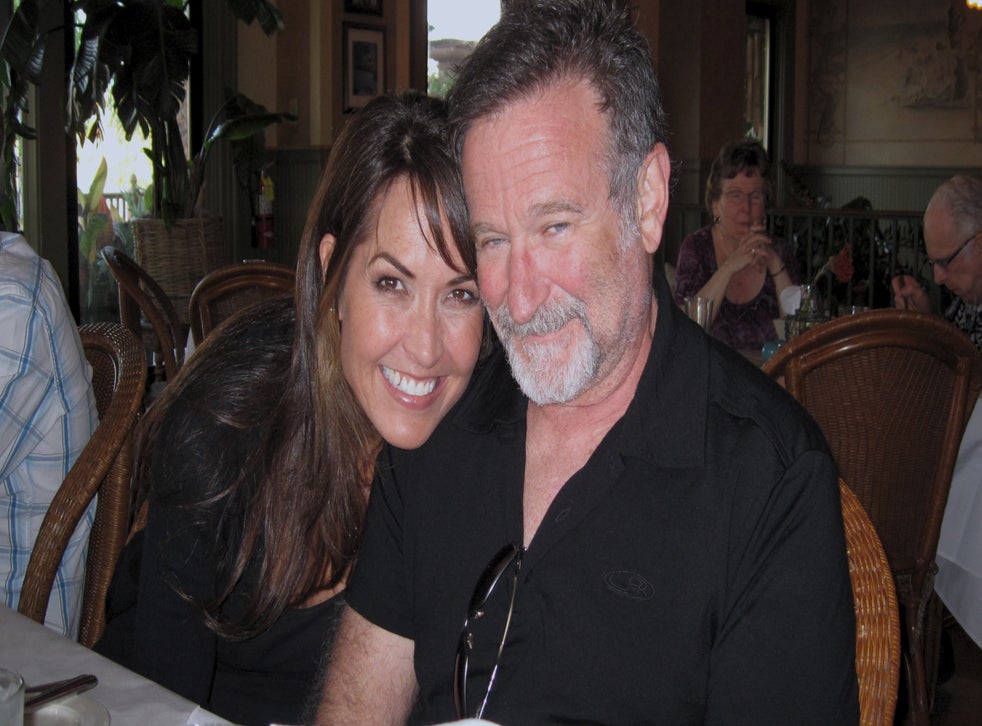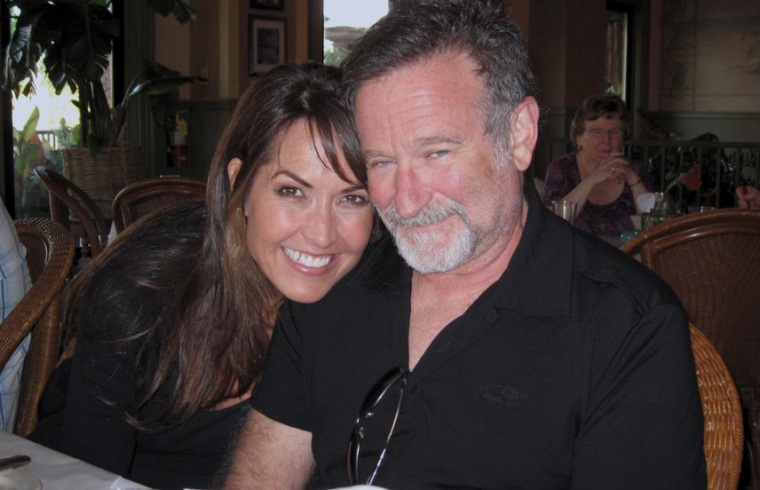Dir: Tylor Norwood. PG, 77 mins
The death of Robin Williams by suicide in 2014, at the age of 63, came as a profound shock. How were we to reconcile the agile, frolicsome mind that graced our screens with such overwhelming private suffering? But the media needed its narrative, and it wrote one with incredible vigour – Williams’s legacy would be that of the tragic clown. Over the following weeks, his history of depression and substance abuse was thoroughly dissected; theories were crafted about his finances and career prospects.
A new documentary, Robin’s Wish, underplays an important lesson – that celebrities do not belong to us. Their lives aren’t cheap fodder for cautionary tales and romantic tragedies. But the film, directed by Tylor Norwood, chooses not to admonish its audience. It takes the more compassionate route, meticulously documenting Williams’s final months, with the cooperation of his widow, Susan Schneider – a desperately sad task, laden with unresolved grief.
Williams’s autopsy revealed that he was in the late stages of Lewy body dementia (LBD), a neurodegenerative disorder that sweeps across the entire brain, causing both physical and mental deterioration. It is, in all cases, both fatal and incurable. Suicide is common among sufferers. As Dr Bruce L Miller, the most prominent of the neurology experts interviewed, explains: “It really amazed me that Robin could walk or move at all.”
The cruellest part of it was that Williams never knew what terrible assailant had laid claim to his brain. First came a sudden, alien feeling of self-doubt. After that, memory loss, panic attacks, hand tremors, paranoia. The delusions would keep him up all night. Robin’s Wish offers the image of a brilliant mind at war with itself. A neurologist states that the most exceptional of brains are often better equipped to resist degenerative diseases. He’s obviously talking about Williams, the preternaturally gifted improviser who always seemed five steps ahead of everyone else. But, as Miller notes, his was the most severe case of Lewy body dementia he’d ever seen.

The film meticulously documents Williams’s final months, with the cooperation of his widow, Susan Schneider
(Vertical Entertainment)
Williams kept these agonies private, so Norwood instead captures the despair of those he did confide in. Schneider is at her most vulnerable when she describes the moments his disease made him doubt their love. A doctor, at one point, suggested the couple sleep apart. Williams, in a confused state, responded: “Does this mean we’re separated?” The actor would often bump into his neighbours. One day, he asked one of them for a hug, then began to weep. Shawn Levy, who directed his final film, Night at the Museum: Secret of the Tomb, would receive late-night phone calls from Williams, who just needed to hear that he’d done a good day’s work.
The hurt in all their voices is palpable, but Robin’s Wish never really extends beyond a small circle of friends and loved ones – his three children don’t feature, for example. There are snippets of biography: his formative days at acting school, his recording sessions for Aladdin (when he was at the height of his comedic powers), or the shift towards dramatic work that culminated in Dead Poets Society. But there’s little sense of the depth of Williams’s legacy here, or what the world lost beyond a husband, a friend, and a colleague. Perhaps that pain is enough.









